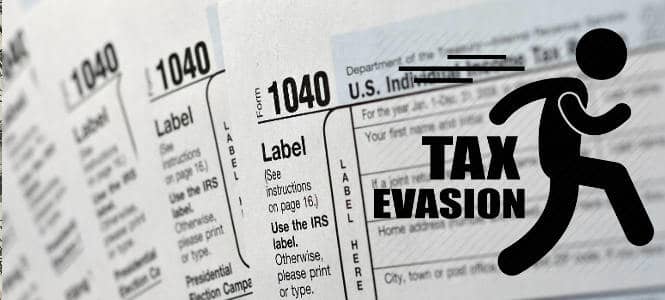

The Federal Tax Evasion Codes can be complex and may seem as if they are out to get you. Hopefully, this article will help you understand where the risks are and how to get help with your situation.
Federal tax evasion typically requires intentional acts to avoid paying taxes, falsifying tax documents, willfully failing to pay taxes you owe, or intentionally failing to disclose all of your income to the I.R.S. While simply being negligent may be a partial defense, you should consult a licensed attorney to help you understand the nuances of your case. Negligently submitting false information to the IRS can carry a 20% penalty on the amount owed, while intentionally falsifying tax-related information carries the following penalties.
Under 26 U.S.C. 7201 attempting to evade or defeat paying taxes is a felony and carries a penalty of imprisonment for up to 5 years, a $250,000 fine for individuals or a $500,000 fine for corporations, or both, and reimbursement to the federal government to cover the costs of prosecuting you.
It is important to distinguish between attempting to evade assessment versus attempting to evade payment. The difference lies with when the attempted evasion occurred A frequent example is where a person or corporation attempts to move assets around so the I.R.S. wont find them and tax them, that is evading assessment.
If that same person or corporation is assessed a federal tax evasion, and then later attempts to hide assets that could be used to pay the tax, then an attempt to evade payment has occurred.
These violations often result from the filing of false returns that omit taxable assets, but can also be for a failure to file at all preceded by the government independently discovering assets and assessing a federal tax evasion.
To violate this section the government must prove:
Under 26 U.S.C. 7203 the willful failure to file a return, supply information, or pay tax at the time or times required by law, are felonies and carry a penalty of imprisonment for up to 3 years, a $250,000 fine for individuals or a $500,000 fine for corporations, or both, and reimbursement to the federal government to cover the costs of prosecuting you.
To violate this section the government must prove:
Under 26 U.S.C. 7206 filing a fraudulent and false statement verified via written declaration under penalty of perjury is a felony and carries a penalty of imprisonment for up to 3 years, a $100,000 fine for individuals or a $500,000 fine for corporations, or both, and reimbursement to the federal government to cover the costs of prosecuting you.
To violate this section the government must prove:
As you can see, these issues are intensely fact dependent and carry heavy penalties. If you are being accused of tax fraud or federal tax evasion contact a licensed attorney to discuss your case and how they may be able to help you. The criminal justice system is powerful and you don’t want to be at a disadvantage when faced with these sorts of consequences.
If you have recently been arrested for Federal Tax Evasion or related offense, please don’t hesitate to call our Criminal Defense Lawyer for a free, no-obligation consultation with a Federal Attorney.
Call LAW MART for a FREE Case Review: 310-894-6440

Copyright © 2024 law – Powered by AmelCS